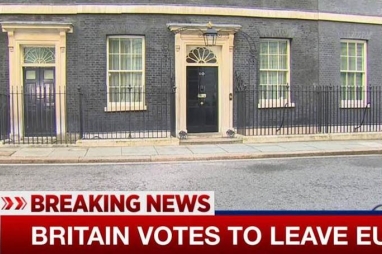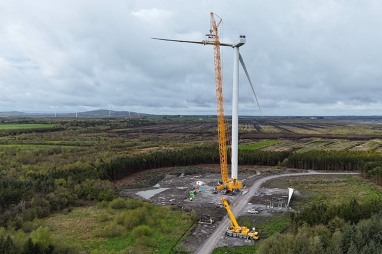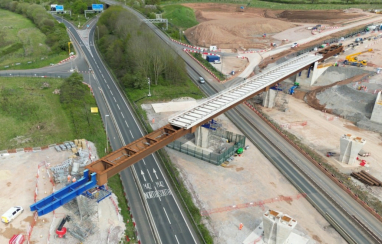- IetpShops - Is a Nike SB x Air Jordan 8 Retro BG Three - 142 Pine Green in the Pipeline Low PSG DZ4133 , 008 Release Date - Is a Nike SB x Air Jordan 4 Pine Green in the Pipeline - Peat 305368
- IetpShops , Air Match Jordan XIII Michael Finley Autographed Mavs PE - 106 Release Date + Where to Buy - Women's Air Jordan 1 Mid Surfaces in Lucky Green and Aquatone DZ4137
- Jordan 10 Retro Light Smoke Grey310805-062 , 602 Release Date - Verse 555088 - Air Jordan 1 Origin Story Spider - IetpShops
- nike navy acg fw18 , nike navy acg fw18 Low Release Date - SBD
- Adidas forum low ✨⭐🌟 кроссовки для города форум как форсы но от адидас, nmd r1 vs nmd r2 womans sizing pants suit , Украина #123590352, а не найк. форум — цена 2049 грн в каталоге Кроссовки ✓ Купить мужские вещи по доступной цене на Шафе
- air jordan xxxv cq4227 004
- Travis Scott Air Jordan 1 High OG CD4487 100 Release Date Price
- air force 1 shadow
- Air Jordan 1 Satin Black Toe CD0461 016 2019 Release Date 4
- Air Jordan 1 University Blue 555088 134 Release Date Price 4
- Home
- News and analysis
- Info hubs
- Events
- Video
- Case Studies
- About us
- Magazine
- Advertising
Produced for the industry by the Association for Consultancy and Engineering
News
Goodbye Europe: industry reacts to Brexit vote

Following the UK’s decision to leave the European Union, leading industry figures have been speaking to Infrastructure Intelligence to give their reaction to the referendum result.
Infrastructure industry leaders are seeking assurances from government that its spending plans will remain robustly in place despite the fallout following the UK vote to leave the EU. In the initial aftermath, including turmoil in the financial markets and David Cameron's resignation, it has become clear that government has a lot of work to do deciding on its next steps and who will lead the country. This has already raised fears that attentions will be turned away from critical infrastructure decisions.
As well as economic turmoil in the immediate aftermath of the referendum result, we can now add several months of political uncertainty. This will inevitably have an impact on the infrastructure sector in the weeks and months ahead. Important decisions now likely to be delayed further include announcement of which airport, Gatwick or Heathrow, gets the nod for a new runway. Investment from Europe in key projects such as the Hinkley Point C nuclear plant, also look to be on ever shakier ground.
Leading industry figures have not been slow to react.“Brexit is a game-changer,” said Alan Brookes, UK chief executive at Arcadis. “The challenge for the construction industry is not simply to respond to Brexit but, more importantly, respond to the opportunities that Brexit will bring. Construction markets are likely to become more volatile in the short term and we need to consider a joined-up approach to sustaining the capacity and capability of the industry. Although demand is likely to fall in some sectors this could actually take some of the pressure off over-stretched markets. Ultimately the UK needs to keep building. Housing and infrastructure, for example, may now be able to secure capacity at a lower cost.
"Brexit is a game-changer. Construction markets are likely to become volatile in the short term and we need to consider a joined-up approach to sustaining the capacity and capability of the industry."
Alan Brookes, Arcadis UK chief executive
“One of the big questions we now face is: how can we ensure we have enough people with the right skills to build the houses, roads and rail lines of the future? In the future, European labour may no longer be the safety-valve it has been, so we must plan to use the workforce differently. Using more offsite components and investing in skills and the management of projects will now prove absolutely vital.”
Keith Howells, chairman of Mott MacDonald, said: "The consequences of the UK’s decision to leave the EU remain unclear, and as a business we will need time to assess the implications. How exiting the EU will occur or what UK’s future relationship with the EU will be is far from certain at this time. The fact is we are still in the European Union and will be for the next two years, so it remains business as usual.
"We will continue to work together with our clients in exactly the same way. We employ both EU and non-EU staff and have offices throughout Europe and the world. We are used to dealing with challenges and change, and given the diversity of our business we are confident of our ability to adapt to new circumstances as they emerge. We will see what happens in the next few months and will be ready to respond."
Patrick Flaherty, AECOM chief executive, UK & Ireland, said that business had a key role to play in stabilising the country following the referendum result. “As the country faces a period of change and uncertainty, business must play a stabilising role,” said Flaherty. A positive, long-term focus on the future is required despite a referendum result that we and many businesses did not want. No nation has ever left the EU, so the long-term impact cannot be accurately forecast at this time. These are unchartered waters made even more uncertain by the prime minister’s announced resignation and the leadership election that will follow. As a country we must navigate wisely. Business must support government as it leads the country through this period of change,” he said.
Flaherty also highlighted the inevitable uncertainty that would follow the Brexit vote. “Business inevitably now faces a period of disruption. It is critical that the domestic agenda is not sidelined as the UK faces a minimum of two years of negotiations to leave the EU. Focus must remain on energy security and energy independence, as well as progressing the UK’s ambitious infrastructure pipeline. Schemes such as HS2, Crossrail 2 and the Northern Powerhouse programme are vital to the country’s ability to compete on a global stage, which is more crucial than ever due to this referendum result,” he said.
Atkins chief executive Uwe Krueger said: "It is critical during this period, that government does not become distracted from the vital task of delivering the nation’s infrastructure and ensuring the future productivity and competitiveness of the UK. Close attention must also be given to the maintenance and protection of our commercial and contractual links with Europe.”
"It is critical during this period that government does not become distracted from the vital task of delivering the nation's infrastructure."
Uwe Krueger, Atkins chief executive
Mark Naysmith, WSP | Parson Brinckerhoff UK chief operating officer, said: “The UK’s decision to leave the European Union leaves more questions than answers at this time. A large part of WSP | Parsons Brinckerhoff’s business in the UK is focussed on a diverse UK client base, together with strong global connectivity across many markets and sectors. Combined strength with an agile, flexible workforce with transferable skills enables more resilience when dealing with economic swings. I am confident that the underlying strength of the UK as a country, during this period of uncertainty, will lead to future prosperity.”
Malcolm Bairstow, EY UK infrastructure leader, reflected the views of many in the industry who are concerned about uncertainty having an effect on the government’s ability to make important decisions about infrastructure. “With infrastructure so crucial to the UK’s growth ambitions, there will now be nervousness,” Bairstow said. “There is likely to be a period of uncertainty which may impact decision-making around projects and overseas investment while details are thrashed out between the EU and the UK government.
“The industry may face challenges in exporting skills and expertise in engineering and consulting services if the pound weakens and if there are barriers to the European market. A significant proportion of the UK’s builders and construction labour is sourced from Europe and there will be uncertainty over what happens next. If we start to see a movement of these workers out of the UK, this would inevitably cause a slow-down in construction and house-building which could also have a significant impact on development across the country,” said Bairstow.
Matthew Farrow, director of the Environmental Industries Commission, said: “The UK environmental industry will be apprehensive this morning. For all its faults, over the last 30 years the EU has turned Britain away from our past of landfills, toxic air and filthy beaches. The long-term certainty provided by EU environmental laws gave green businesses a framework against which to plan and invest, and EU membership enabled the UK to help shape Europe’s stance in global climate negotiations.
“As we now enter the uncertainty of negotiations leading to withdrawal from the EU, it is vital that all those who care about our environment work together to ensure that an independent UK builds on, rather than dismantles, the high environmental standards that EU membership has delivered. The EIC and its members will be at the heart of this effort.”
Bechtel's president of infrastructure, Toby Seay, reflected the views of a number of firms we contacted who were still taking stock of the referendum result. “The UK’s EU referendum has been a democratic process. Its implications will take time to unfold and call for careful analysis. We will be working closely with our customers, partners and suppliers to understand any impacts on the industry. We remain committed to the UK,”Seay said.
The July/August issue of Infrastructure Intelligence magazine will include a special feature with more reaction from the industry to the Brexit vote.






Comments